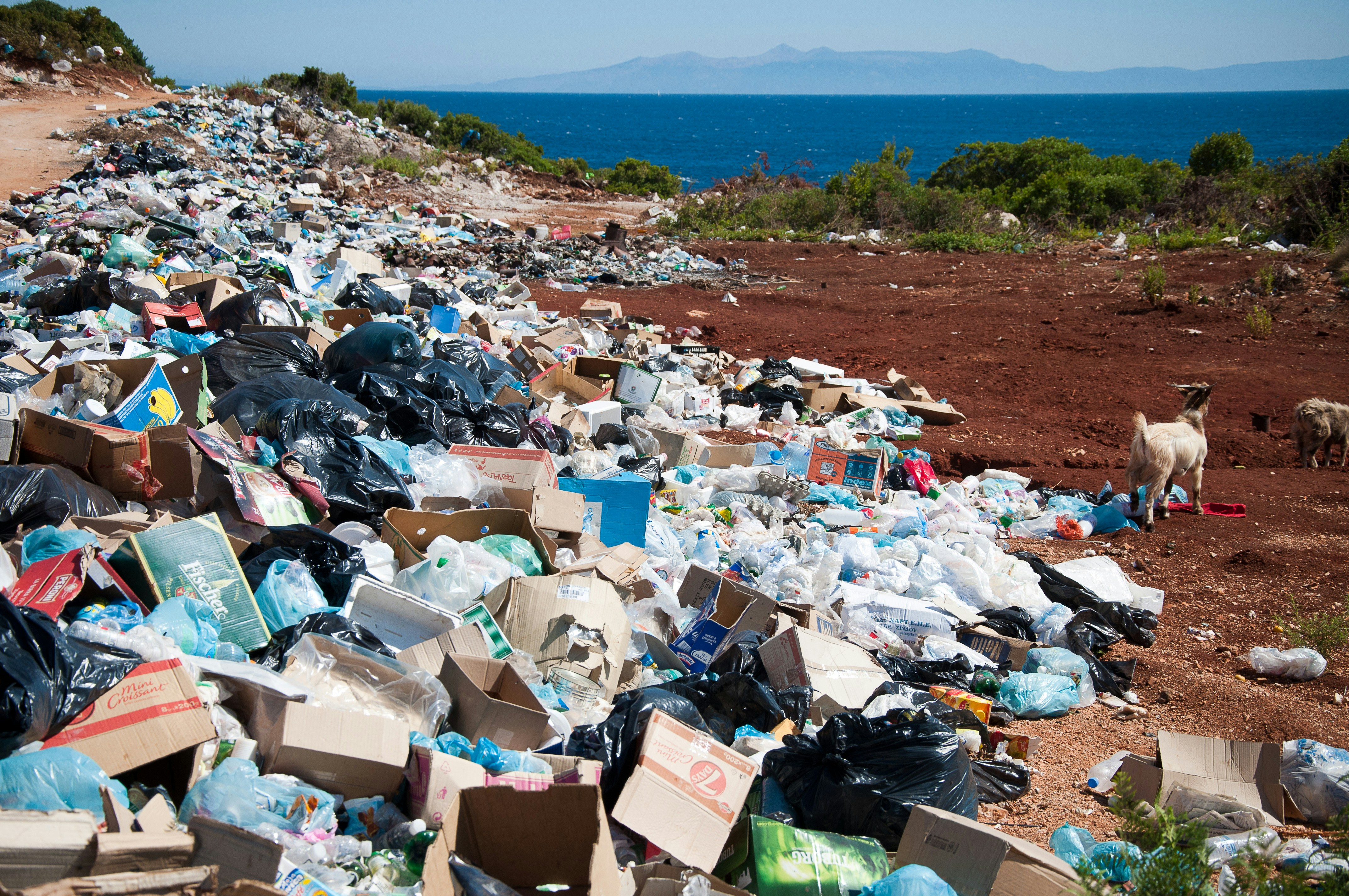"Guests" Have Come to Settle in Our Brains
 Martin Bartels
Martin BartelsHuman body
Microplastics are increasingly being found in the human body, often in significant concentrations. They have been found in the blood, lungs, liver, kidneys, heart, reproductive organs, placenta, breast milk and brain.
Research points to effects of microplastics on inflammation, metabolic disorders and cardiovascular disease. The concentration of microplastics in the form of shards or flakes in human brains is 7 to 30 times higher than in livers and kidneys and average concentrations have increased significantly in recent years. Concentrations of microplastics in people with dementia are higher than average, suggesting that microplastics affect brain function.
Microplastics enter the human body through food, drink and breathing, often from unsuspecting sources. New findings suggest that even everyday tea bags can be reinforced with plastics that release from the paper when exposed to boiling water. The seemingly innocent tea bag is therefore an example of how our cautionary instincts are not enough to recognise health risks.
The dimension
The world produces more than 460 million tonnes of plastic every year, all of which is destined to become waste when the material no longer serves a practical purpose. According to figures from 2019, around 9% of plastic waste is recycled for other purposes, 19% is incinerated, 49% is buried and the rest is classified as 'mismanaged'.
Approximately 8 million tonnes of this mismanaged plastic enters the oceans through a variety of pathways. Once there, it enters into ecosystems and food chains, ultimately reaching the dinner plates of people around the world.
Depending on the type, plastic degrades over long periods of time, ranging from 100 to 500 years. Thus, in our lifetimes at least, even recycled plastic is likely to become plastic waste again and again.
Could modern life possibly function without plastic?
The benefits of plastics are undeniable. Modern economies cannot do without this universal lightweight material. The practical and economic benefits of the wide range of different plastics with countless applications are overwhelming. Thus, plastics cannot be banned. The effect would be the same as if people in the Stone Age had decided to stop using stones.
Substitution of plastics with biodegradable and easily recyclable natural materials?
It is possible to reduce the use of plastics by using biodegradable substitutes that break down naturally, such as wood, bamboo, paper, jute and recyclable glass or metals. There are also new biodegradable materials made from fungi or seaweed. However, this is a niche market that appeals mainly to wealthier citizens and has failed to reduce the flood of plastic for many years.
Accusations are pointless
Is it to our advantage to blame the plastic-producing industries and campaign against them? Or are consumers to blame for buying more and more consumer goods made of artificial materials? Such debates lead nowhere, and so it is better to leave them aside.
A first spotlight on manufacturers
It is a universally accepted principle that when industrial goods with potential negative externalities are put on the market, the manufacturers must ensure that consumers are exposed to the lowest possible risk. For example, cars can only be sold if they have been tested by public authorities and found to be sufficiently safe for road users. And if dangers do emerge later on, a public authority has the right to intervene. In extreme cases, the judicial system is the last line of defence for consumers.
The most spectacular cases come from the airline industry where there is little debate about the need for state institutions to intervene. Aviation disasters are more likely to trigger political and public action because they are more spectacular events compared to the slow and silent build-up of plastics particles in our brains. In reality, however, the risk of plane crashes is low and perhaps less serious than microplastic ingestion.
The same protective scrutiny that the airline industry receives also applies, for example, to pharmaceuticals, food, nuclear power and the extraction of natural resources on land and at sea. The chemical industry is no exception and is subject to extensive regulation, with the aforementioned exception relating to the long term damage caused by disposable plastics. Recognising the universally accepted originator principle and the responsibility of the national state goes some way, but it is not enough. The global nature of the problem suggests the need for a global solution, with coordinated rules for the chemical industry and the users of its products.
Dedicated forums and conference marathons
Governments and international organisations have begun to seriously take into account the threat that plastics pose to ecological systems and, in particular, to human health. The growing number of international forums and conferences dedicated to this issue is impressive. Yet while the exchange between experts and industry representatives is increasing knowledge, the scale of the threat to public health is growing every year. It is unclear whether binding international agreements will be reached to gradually overcome the problem.
An "International Plastics Treaty"?
Intensive efforts are being made to negotiate a binding 'International Plastics Treaty' that would set universal standards for the management of plastic waste. There is no shortage of expertise, and the efforts are sincere. The pertinent question is the likelihood of success.
In parliaments, the majority principle applies; decisions taken by a majority of representatives are binding on the minority who did not vote in favour.
Yet, when representatives of a large number of states are trying to secure an international treaty, the majority principle does not apply. Instead, every effort is made to ensure that as many representatives as possible from the countries involved in the negotiations can agree. The aim is unanimity.
There are two reasons why it is unlikely that agreement will be reached on measures for a global strategy sufficient to address a global problem:
- Unanimity is difficult to achieve if not all countries consider the issue to be equally relevant. There is no way to force them to consider microplastics to the same extent as a threat to the health of their people: for example, the government of a landlocked country may see plastic floating in the oceans as less of a problem.
- If the implementation of an agreement requires capital from the budgets of states with unequal financial strength, there will be disputes over which countries should bear which financial burdens.
So, while agreements may be made, they are likely to be inadequate. This may allow policymakers to argue that they did their best during the negotiations. In reality, such 'progress' is just a label to be stuck over 'failure'.
All in all, the approach of seeking unanimity is extremely fragile.
The huge and serious efforts to develop a common strategy against global warming have already confirmed the above arguments. Small island nations facing submergence are among the first to see climate change as an existential question, yet have found it difficult to convince the larger and richer nations of the urgency. The need to act on the basis of consensus leads to poor or no results when opinions differ on the goals to be achieved and the distribution of burdens.
In addition, there is uncertainty about continued commitment. A government can suddenly decide to deny the existence of a problem and withdraw from co-operation, jeopardising the whole process.
It is therefore unrealistic to expect that we will ever see an international plastics treaty that adequately addresses the emerging threat of microplastic pollution. Tick it off.
Realistic approach no. 1: bans
One of the most important responsibilities of any government is to protect its citizens from health hazards. This includes banning the sale of substances and products that are harmful to health. As noted above, it's not feasible or desirable to blanket ban all plastics, so the focus here is the risk that the consumers are exposed to, not the manufacturing process.
The best way to achieve this is to phase out products that introduce microplastics into the human body, either by direct ingestion (food and drink, packaging, shampoo, cosmetics) or by inhalation (car tyres), starting with the easiest sources to eliminate.
In the past, there was a risk of collective neurological and cognitive disorders in humans because it was common practice to increase the octane rating of petrol by adding tetraethyl. Starting with Japan, national governments have therefore required suppliers to sell only unleaded petrol.
Realistic approach no. 2: higher budgets for scientists and engineers to develop sustainable products
When you put scientists and engineers to work on an emergency, they tend to deliver. Unlike policymakers, they are bound by consistent professional methodologies. They do not have to worry about re-election by publishing initially unpopular research. All they need is a clear mandate and an adequate budget to get the results.
There could be the two main priorities for development work:
- We need plastics that do not put ecosystems and human health at risk. These are biodegradable or bio-based plastics. Research in this area is well advanced.
- There is a need to reduce the amount of plastic that is improperly disposed of by burying it in the ground or dumping it in the oceans.. Researchers are making progress. Many industrial companies have started to produce biodegradable plastics or are at an advanced stage of preparation.
Now is not the time to mistrust scientists and engineers. It is time to support them more than ever.
Markets will follow
If new solutions are:
- at least as useful and attractive as the existing ones,
- economically competitive,
- compatible with ecosystems and,
- effectively protect public health,
then the laws of supply and demand will drive rapid change. Economies of scale in industry are a function of allocated resources.
Plastics manufacturers are not interested in endangering people's health (or their own), they are interested in making a profit. If they can do this with products that protect health and strengthen their market position, they will, and change will come more forcefully and quickly than an international treaty could ever ensure.
Summary
There are four alternatives, the last two of which are viable as a combination:
A reminder from the past
One of the reasons for the collapse of the Roman Empire was the contamination of the population with lead. At that time, no one had any idea that this metal, which was considered to be extremely useful, would have a negative effect on people's health and ability to think.
Today, however, we have the privilege of being able to know which substances pose a threat to our civilisation. And we are obstructed by people who eloquently spread the illusion of finding sufficient solutions through hopeless negotiations.
Send a private message
Share your thoughts and get in touch with the author
Write a Message
No comments yet. Be the first to share your thoughts!
Global Population Decline is Like Quicksand: The More we Struggle without a Good Plan, the Faster we Sink
An in-depth analysis of the global demographic transition from growth to decline, exploring its causes, impacts on economies and societies, and potential solutions through immigration and technology.
Beneficial Artificial Intelligence Can Cast a Dark Shadow
An analysis of MIT's 'Future You' AI and its potential to guide life choices, examining both its benefits for youth decision-making and the risks of manipulation in AI-assisted life planning.

